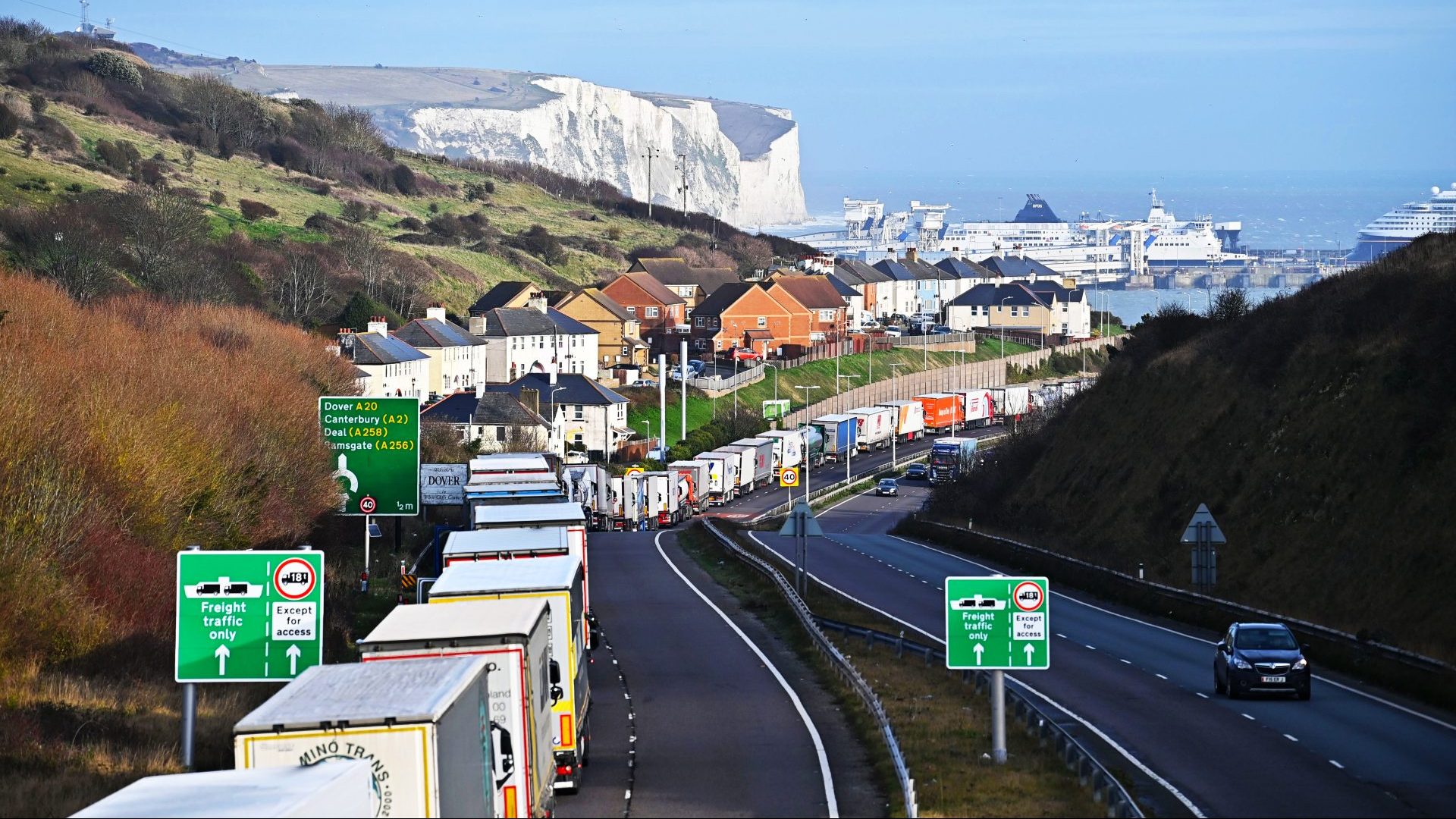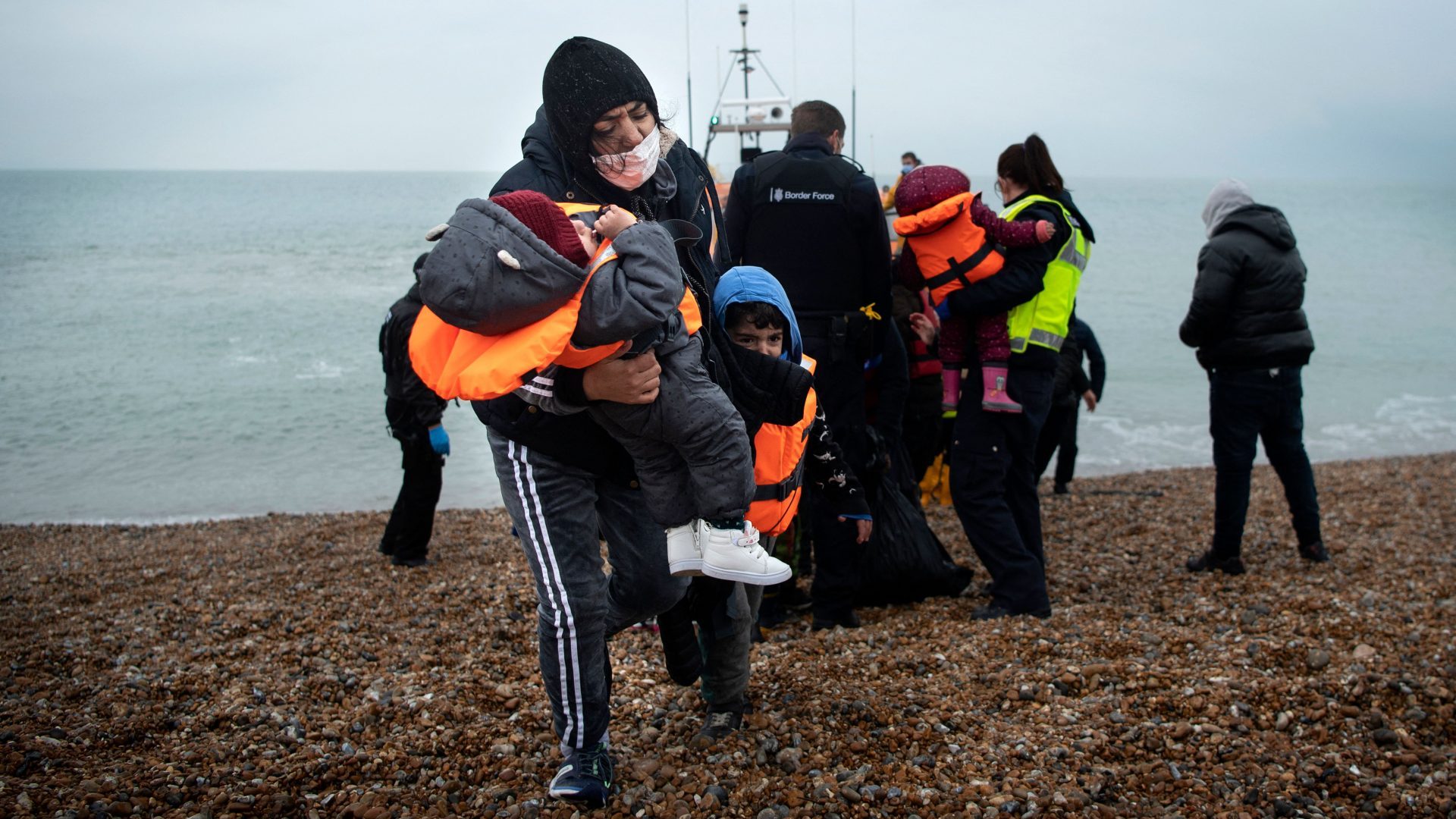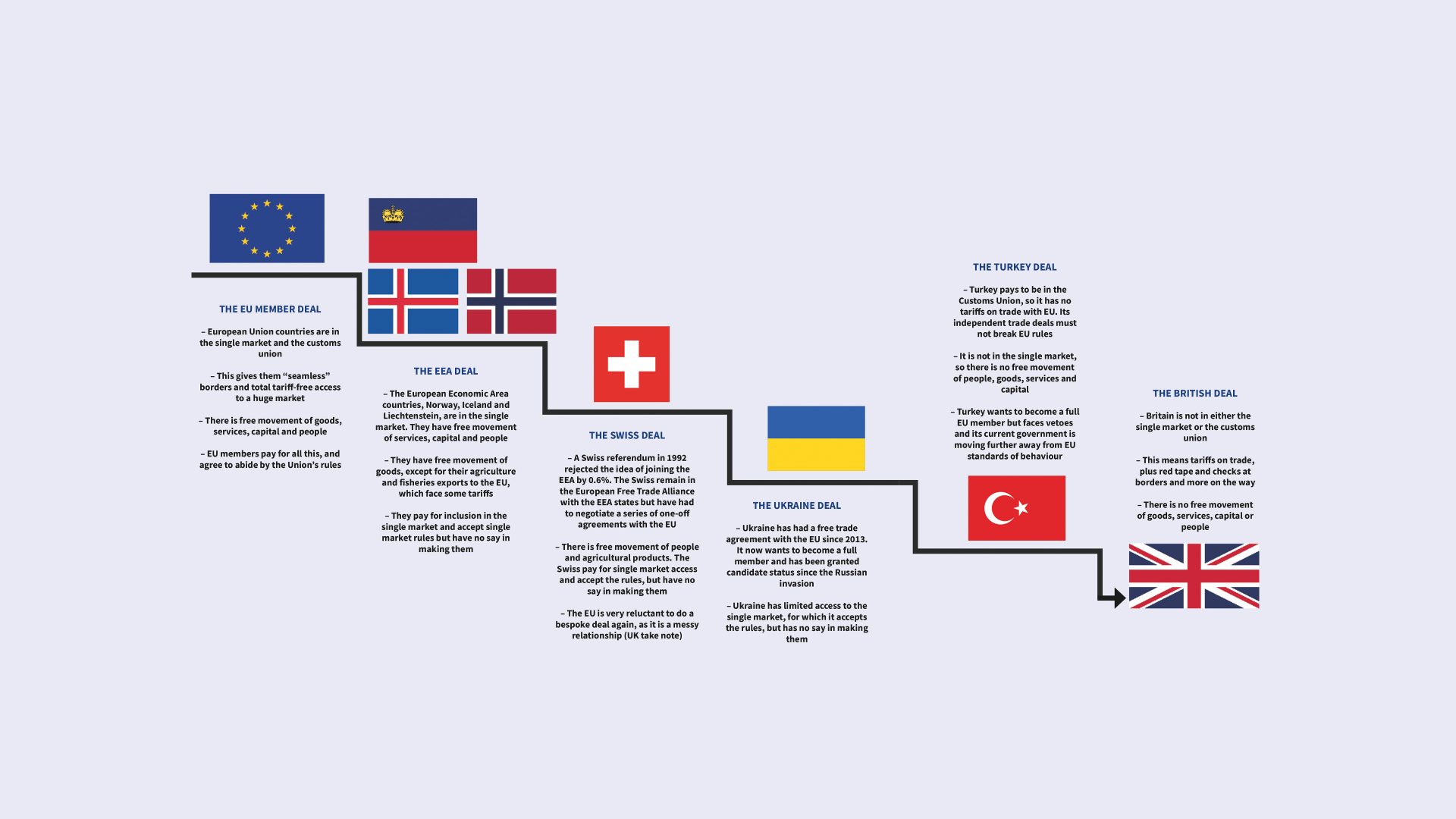In the run-up to and immediate aftermath of Brexit, debates about the nature of Englishness and identity have encouraged a focus on the forms of nationalism that are sedimented in the landscapes around us. Often taken for granted, these landscapes are dense with objects, materials and bodies that project a strong sense of national identity: memorials, flags and monuments are particularly significant here, but the physicality of the land itself is also important.
Nowhere is this more apparent than at Dover, where the towering chalk white cliffs have been symbols of national identity since at least the 19th century. Famously, Matthew Arnold’s 1867 lyrical poem Dover Beach employed the cliffs as a metaphor for the national values he felt were under threat, invoking both patriotism and faith via reference to the “calm cliffs” protecting from the “grating roar” below.
By the 20th century they were firmly woven into the national psyche as the gateway to England: writing in 1920, travel journalist Walter Jerrold memorably termed them “the white walls of Albion” (England’s original Roman name of Albion being derived from the Latin albus for white). The first and second world wars consolidated this mythology: for soldiers on continental battlefields, the idea that they would once again view the white cliffs was pivotal in rituals of military departure and homecoming. Acknowledging this, in November 2019, 101 years on from the end of the first world war, a Dakota plane dropped 750,000 biodegradable poppies over the cliffs, honouring those who made the ultimate sacrifice for their country.
Given the persistence of these myths of military endeavour and national sacrifice, it is not surprising that patriotic representations of the white cliffs of Dover have been invoked by those arguing that severing ties with the EU is the best thing Britain has ever done. For many, they have become iconic of Britain’s elemental insularity, and propped up myths of the island nation. More than a mere icon of Englishness, here the cliffs reinforce a sense of “islandness”, and a distancing from continental Europe that is both physical and cultural. In this sense, opponents of Brexit were only too ready to seize upon a major cliff collapse in February 2021 as a symbol of post-Brexit decline, as if the very chalk itself were attempting to leave for Europe.
But it is the town of Dover itself that for many has appeared a litmus of the national mood, seldom out of the news in the tumultuous years since the Brexit referendum. Media commentators, journalists and academics alike have all descended on the town, trying to understand quite what impact Brexit might have on this corner of the country, historically understood as the “key to England”, and only 22 miles away from continental Europe.
Given Project Fear’s predictions that Brexit would create chaos at the border, journalists descended on Dover asking residents if they feared gridlocked roads, rubbish-strewn streets and the prospect of food shortages if a deal with Europe was not thrashed out. These questions were particularly loaded given that 62% of the town’s population voted for Brexit – a remarkable figure given that Dover’s economy has long been reliant on cross-Channel transit and trade. The consensus view in the town seemed to be that if there were short-lived problems at the border post-Brexit, this would be a price worth paying, as 48 years of European membership had coincided with the decline of maritime services and rising unemployment, with the opening of the Channel Tunnel in the 1990s meaning that increasing amounts of cross-Channel traffic by-passed the town.
Recent years have witnessed scenes around Dover that have in some ways matched the predictions of those who foresaw travel chaos and disruption around the Channel ports as the Brexit deadline loomed. Queues of goods vehicles on the M20 motorway and approach roads to Dover have been a regular sight, with fractious scenes around the port as foreign lorry drivers bemoan the lack of facilities for stranded drivers, with new customs checks required at inland border facilities long before they even get close to the Channel ports.
Perhaps predictably, failures in post-Brexit customs IT systems have been blamed for some of these delays, but others were less foreseeable. In December 2020, it was the French decision to close the border as the “Kent variant” of Covid-19 raged in the south-east of England that caused mass disruption, and desperate scenes as many lorry drivers spent Christmas reliant on food parcels lowered from motorway bridges by charitable locals.
Since March 2022, further delays have been caused by the outrageous decision of P&O to sack 800 ferry workers – 500 in Dover – and replace them with under-trained and poorlypaid temporary workers. Questions about the seaworthiness of P&O’s boats, undermined by agency staff being unfamiliar with vessels, meant the firm’s cross-Channel service was out of service for more than a month, causing gridlock at times of peak demand as its rival DFDS rescinded a previous agreement to take P&O passengers in the event of delays.
The sacking of 800 ferry staff by P&O was yet another hammer blow to Dover’s local economy, which has lagged behind the rest of Kent and the greater south-east following a series of closures, ranging from the final pits closing in the Kent coalfield in 1989, Old Park Barracks (1993), the town’s paper mills (2000) and the hoverport in 2005. In Dover, perhaps more so than elsewhere, people voted for Brexit because they believed such closures were partly a result of EU membership that had weakened control of national borders and allowed migrants to take “British jobs”, undermining local businesses.
Such thinking mistakenly conflates free movement within the single market with migration into the EU from outside, but the rise in the numbers of asylum seekers landing on beaches near Dover was repeatedly taken as prima facie evidence of the “crisis” of the border, and the perceived problem the UK had in managing the flows of migration (something preyed upon by pro-Brexit campaigners when they peddled the unfounded myth that Turkey was about to join the EU and that the UK would be overwhelmed by Turkish gastarbeiters).
In this sense, the Brexit mantra of “taking back control” was positively received in Dover as it seemed a way of reversing the economic decline that many residents associated with the ceding of national political autonomy to Europe. In Dover – as in many other areas that had experienced deindustrialisation – older, white residents tended to vote for Brexit not because of the financial costs of membership, but as a statement about the eclipse of the British empire and the decline of Britain as an economic force.
Many believed that severing ties with Europe would help economic revival by preventing the influx of foreign migrants prepared to work for less than British nationals. But the P&O affair has surely debunked such myths: it is not EU legislation that allowed the company’s bosses to sack 800 workers without notice, but legislation passed by Chris Grayling in 2018.
With Dover’s P&O ferries being registered in the Bahamas and Cyprus, and the company owned by Dubai-based DP World, it is clear that weak UK labour laws, and not EU membership, are to blame for recent job losses. As many commentators have pointed out, deprivation and unemployment in “left behind” regions are strongly related to UK corporate laws that put the interests of shareholders above those of other stakeholders – particularly employees. The problems witnessed in Dover are symptomatic of the “race-to-the-bottom” capitalism that the Conservative party has encouraged through its labour law reforms – reforms that have left employees with little recourse in the event of unfair and unjust redundancy.
The events that have unfolded near Dover hence serve to remind us that the pursuit of “exclusionary nationalism” and severing political ties with Europe was never likely to restore the fortunes of the poorest populations in the UK. Indeed, exclusionary nationalism is arguably part of the problem, not the solution: the contemporary crises of global displacement, climate change and economic precarity increasingly require us to work across international borders, not harden them. Viewed from continental Europe, the white cliffs of Dover might support the idea we are an island nation, but when viewed from Dover, Europe still looks very close indeed.
Phil Hubbard is a professor of urban studies at King’s College London
Borderland: identity and belonging at the Edge of England is published by Manchester University Press in June 2022, priced £15.99. All the authors’ royalties are being donated to the Kent Refugee Action Network



